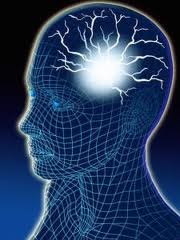Why is there a severe and discordant disconnect between religious

people and reality? There are some people who simply refuse to accept reality, especially scientific data and evidence, which disproves their religious reasoning. Scientific evidence authenticated that there is evolution and that the earth is more than a billion years old; however, many religionists believe that the world is only thousands of years old and there was NO such thing as evolution. Many religionists are also anti-progress in terms of gay/lesbian issues and women's reproductive rights. Let's discuss this!The better question is why some people insist that religious people across the board refuse to recognize reality. That is in itself a refusal to recognize reality.
Some people are not interested in truth - those relative few that cling to beliefs known to be false (young earth, anti-evolution, etc.) are among them. Their perception of reality, what they want reality to be, is far more important to them than reality bits far removed from what will affect their everyday life.
But accepting LGBT issues, OR the murder of babies, is not progress. It is the devils work and if allowed to spread will condemn additional millions to eternal burning. The bigger question is why this is so difficult for some to understand, particularly in the matter of baby killings. True, proponents will often try to side step the issue by referencing women's reproductive rights, but women do NOT have the right to murder infants and all the talk about reproductive rights will never change that.
And no, I'm pro-choice but do at least try to understand the opposition's position and where they are coming from.This is a very interesting subject. Thank you for initiating it.
I think that it wold be useful that, starting with the initiator, every contributor give its own definition of "religious people" and "reality".While the definition of "religious people" will vary enormously, why would a definition of "reality" vary at all? There is, after all, only one even though there are several Billion perceptions of reality.
So. Whose perception takes precedent? Does the majority rule?
In such a fiercely individualistic society, yes and no.
The one with the most power. Political or physical.
It has always been so. Galileo was sentenced to jail in 1633, later commuted to house arrest, where he remained until his death in 1642, because his perception differed from that of the church, the ruling power.
In the US we see areas insisting they WILL teach ID as a science, and do just that. In those areas the church is again the ruling power, while other areas it has fallen enough as to be unable to force their belief system on others.I insist that everyone upon arriving states his own definition of religious or reality, it will facilitate the discussion. In parenthesis, I don't know which Church you are referring to, because it's been a while since the Catholic Church does not fight the notion of evolution, rather has tried to find a compromise between Creation and Evolution. Which should be, of course, entirely possible. (I'm not a Catholic btw).
Religious: believing a religion is true. Reality; something detectable by one or more of your 5 senses or by machinery designed to augment those senses. Church: in the US, Christianity. All the different sects are similar enough to, in most cases, be lumped together, and specifically in the matter of ID all of Christianity agree that an intelligent creature created the universe and everything in it. Including Catholicism, the last I heard.
It would be good also not to jump back in the discission. Of course the Catholic Church proclaims a Creator God but many of its theologianns have found that Creation and Evolution are no contradictory but possibly complementary.
I think that's what I said several posts ago, although without going so far as to implicate Catholics in the fiasco of teaching ID in public schools. Which I would have done.
Catholicism has a very nuanced view of intelligent design; so nuanced that it is, essentially, unrelated.
Remember, a Catholic priest (Georges Lemaitre) formulated what would come to be called the Big Bang Theory in about 1931.
The ID controversy is not as well understood as either side would like to believe. The fact is that in most areas (and anyone here who has gone to public school is almost guaranteed to have experienced this) evolution is taught as a done deal, signed sealed and delivered. And people who are not schooled in what a scientific theory is (and please don't lecture me on "What Is A Scientific Theory." It's been explained to me multiple times and I do understand it,) only know that it's called the Theory of Evolution. So in the false dichotomy of 'science v. religion' they see an attack on their religion from something that is far from proven, so if a theory is being taught in school as fact, why not more than one theory to show that there really is more than one strain of thought?
The fact is that evolution is not ultimately and absolutely proven. The evidence at hand may well be overwhelmingly in favor of it but the Theory of Evolution is not accompanied by a corresponding Law of Evolution the way there is a Theory of Gravity and a Law of Gravity. And the stock response when I point this out is always (with no exception and little variation) "science will eventually prove it." The irony of a statement of faith being used to 'combat religion' seems to be lost on so many people (on both sides.)
Evolution is not well taught in most schools. Many places to this day still teach it as Darwinian theory.
Scientific Theory is not explained at all in most school systems, which has the dual effects of opening the door for the question "Why just one theory? What if it's wrong?" and also creating the chasm between those who know and those who don't. What I mean is that those who don't know what one is feel looked down upon and don't understand why, and many times those who do (accompanied by those who don't but put their faith in science anyway) actually do act like the other side are just ignorant, and thus kind of dumb.That's the thing about facts, they usually are a done deal and taught in school. That's why ID isn't.
ID has no facts, so it can't be formulated into a theory, which is a collection of facts.
Yeah, it pretty much is.
Laws have mathematical equations, evolution does not, hence it will never be a law. Gravity is both theory and law because there are equations and facts.Let me rephrase, in your eagerness to make your point, you completely missed what I was saying. I wasn't arguing for or against ID, nor was I arguing for or against evolution. I was explaining a situation. If the only thing you can see is "ID is not science" or "evolution is indeed a done deal" then you've completely missed it.
Sorry, when I said "I couldn't agree more" I was replying to CHRIS NEAL.
OK - I can go with nearly all that. That species evolve is a fact, that species evolve into a different species (depending on your definition of "species") has not been observed and thus some will claim is not proven. Just as the sun turning into a red giant is not proven or that it will one day run out of fuel.
So how do we fix this and the "what is a theory" problem? Seems to me the best method is to keep religion strictly away from any education courses. When ID becomes a "theory" equivalent to evolution, when our founding fathers are suddenly all staunch Christians (or pretty much ignored in egregious cases) it is way past time to take that step. Shift textbook design and manufacture to Massachusetts, maybe, or use only atheists in the schoolbook department.The attempt to marginalize or squash religion is seen as exactly that by the religious. I know, I'm one. I understand that many people who say 'let's keep religion out of it' think they are serving science and truth but that is only partially true and only sometimes.
IMO, the best first step would be to better explain what exactly a scientific theory is, because most people who are not really into it will only ever hear 'theory' and apply it the same way detectives have a 'theory' in a criminal case.
The second step would be to better explain as far as possible modern evolutionary theory. The fact that schools still mainly teach Darwin makes it all too easy for these conflicts to erupt.
The third, which is I admit a lot less likely, is to show that religion and science are not automatically incompatible. I understand this will not resonate well with people on both sides, but it is not un-Biblical to believe that God created the universe and all the physical laws in it. And understanding them does not detract from the wonder.
But I know, without even being told, that the last one will always be controversial and I fully expect to have people disagree with me about it here.Yes, we need to explain and define "theory", and that means all students must take at least some high school science.
We also need to better teach evolution, although I'm not happy with it being a required course. Not sure of an answer here, but however we do it in the science classes any taint of ID must be kept out.
Because that goes back to what a "theory" is. No, religion and science ARE incompatible; just look at that definition (of theory) and understand what it requires. Then look at what religion provides (not the claims, but how they were produced). Religion can never provide a scientific theory; it neither "investigates" the appropriate things nor uses appropriate methods.
No, understanding religion and science does not detract from each other...as long as we all understand and accept that the "theory" and "knowledge" of each are not the same. They do not have the same requirements and the words do not indicate the same thing in the two fields.I agree that religion's job is not to produce scientific theories, but many religions serve a more all-encompassing view of life than science. To try to restrict religion to a narrow focus that does allow for that kind of wall, saying that religion and science are definitely incompatible, is a failure to grasp what religion truly is.
And both sides are guilty. Although by far the more common POV is that science explains life and therefor nullifies religion, I've also seen people who get quite adamant that to embrace science is somehow to deny God and give up on faith.
The entire debate is often too simplistic.Science most definitely does NOT nullify religion; religion has a definite place in our society and in many peoples lives.
But to embrace science means to embrace the scientific method, a method which is the antithesis of the method religion uses to find its "truth". One of the results is that after having done that the concept of a god dims to near nothing; while science cannot and does not deny god it clearly shows there is no reason to believe in a god, either.
At it's root, religion is about feelings and emotions (and control, but we'll leave that for another day) without caring if something is true or not; science is about knowledge without a care for how it feels. And the two are incompatible.Eh, no. At it's root religion is about God and/or the spiritual. Your definition of religion assumes from the outset that there are no supernatural entities, let alone God. Which is incorrect.
But there is virtually nothing from god that is known to be factual and true. All that's left, all that can be left, is feelings and emotion. Or do you have truth and knowledge from God? Truth and knowledge that can be verified scientifically, using scientific standards of proof?
You are correct; I assume there are no supernatural entities. Once more, do you have proof of those entities, proof that is acceptable on a scientific basis? Or just feelings, opinions, guesses and assumptions? You are making a statement (there is a god) which falls into the realm of truth and knowledge; can you back up the statement using the methodology of truth and knowledge as opposed to using the methodology religion uses?The problem is that God is outside of so many things. The reason it's called miraculous is because it's not an everyday occurrence. And simply because you can't repeat God in a laboratory experiment does not mean He does not exist, no matter how much you insist that it's the only valid way to prove. To say that 'there is virtually nothing from god that is known to be factual' is true for you (and holy cow and I getting hit with the irony of making that statement) but it is not true en toto.
Yeah, that really makes it convenient for believers to say anything they want about God's existence without ever having to provide a shred of evidence.
Unicorns are also outside of so many things, reality being one of them.
That's why they're usually called coincidences.
And, no matter how many excuses people make up out of thin air (God is outside of so many things) it still doesn't mean God exists.They're usually called 'coincidences' because some people don't want to admit that it's possible for something to exist outside of their understanding. These same people are often heard to say "I don't believe in coincidence" or some such similar when it's not a big thing. Dragging unicorns in is, again, not an argument against what I said, it's an obfuscation.
That would be closed minded. Of course, that "something" would actually have to exist.
Yes, they start calling them miracles, acts of God or paranormal activity.
Gods are no more or less an obfuscation than unicorns, neither have ever been shown to exist.
Define "outside", please. "Outside" as in some undefined, undiscovered, undetectable place that we don't know exists? Or just outside our own bodies?
"Miraculous" typically has nothing to do with frequency of occurrence; it is normally taken to mean an action that violates natural physical laws. Of which no one has ever proven even one. Lots of claims, lots of "there can't be any other explanation!", lots of "It has to be God", but no proof. Just unsupported claims.
Of course my inability to replicate god does not mean He does not exist. Whatever gave you that idea? Not even your inability to do that is proof He does not exist. The problem, to a scientific method of investigation, is that you can't prove he does exist, either. Lacking that proof, or at least some good evidence, means that there is no reason to believe He exists, to science. To religion, the fact of His existence or not is irrelevant, though - belief is common without evidence.
Finally, if you have actual knowledge of a god (not your feelings or emotional state, but knowledge) the world would like to see it. Proof, scientific proof using the scientific method of investigation is required, though, as that is the best known method of producing knowledge. Your feeling that He is there, your desire that He be there, your ignorance of how things happened without Him - all are worthless as proof, to science. All are acceptable to religion, but never science and in fact are will known to produce false conclusions.Outside of our understanding. "Undetectable" means "we haven't seen it" (in these kinds of arguments, I know the literal meaning) but is often put forth as "it doesn't exist."
And which no one has ever explained in a way that eliminates God. Some unsupported claims, but no proof. Confirmation bias. Yet God exists.
Not true. We who believe usually do have evidence, it's just not the kind that hardened materialists usually demand of us. God does not work that way.
Are there people who 'believe without evidence'? Yes. And you know what they are usually called? Atheists.
As I've said, often, and often, and over, and over, if God worked like that then I would not be a believer. I know that some people (and I'm not saying you) have accused me of deliberately making up everything I've said since I can't deliver 'scientific' proof. But I haven't. And I was no kind of candidate for conversion.A point that I've made before but it bears repeating. It may be true that there is no 'proof' that I can point to and you look at it and say, "Oh yes, now I agree with you." But things have happened to me that no one can explain. No one. Some have tried, but they usually (in fact, almost always) hinge on a sort of blanket statement that fails utterly to take everything into account, or is so completely generic that it forces everyone into a cookie-cutter that doesn't exist, or on a diagnosis of mental illness (and usually elements of all three.) So while the statement that I should be able to show proof that literally anyone can see has some validity as far as it goes, the fact remains that I've experienced things that no one can explain in a materialistic way but which do make sense within a context of God's existence.
Think about what you're saying: "I'm ignorant of a cause so it has to be goddunnit".
Ignorance is simply NOT a reason to decide that a god exists, let alone that it interfered in your personal life. Now, you re-create those times somehow, and show that whatever happened was indeed miraculous (violated natural law), then you have reason to believe and reason for others to believe as well.
But a statement of ignorance just is not proof of anything but ignorance. We all have it, we can all claim it, but it means only that we're ignorant, not that there is a god out there somewhere.Think about what I said and don't try to force your own interpretation onto it. It really and truly gives me no pleasure when my point is made so forcefully for me by someone else.
The thing is about that which cannot be readily explained is that some people jump to conclusions, which is what you've probably done. Or, you have denied or rejected explanations because you didn't like them and would much rather prefer jumping to conclusions.
I reiterate, it gives me no pleasure to have my point made for me so often. You make assumptions about me and then proceed to act as if they were foundationally true and already proven. If you can discuss what has happened (that I've written about) without assumptions then I am more than happy to do so. With anyone.
You keep invoking that cop out when your point is moot.
It doesn't matter, you obviously don't care about any explanations that don't involve magic, so why bother?But the point is not moot. Your continuing to cop out is not the same as a refutation of my point. It is an evasion plain and simple. You can't be bothered to really think through what I say, so you reach for the easy generalization and when I point out that it doesn't cover my particular case, let alone every case, you simply dismiss me. Lazy is lazy, and dismissive is not the same as correct.
Sure, I think about what you say. The fact that it is so easy to pick out fallacies and fantasies contained in what you say doesn't mean I'm not thinking it through.
Your case? There's nothing special about your case, you're human just like the rest of us.So you think about what I say by not thinking bout what I say? Okay.
And for crying out loud, what was that? Did I claim to be other than human? No. But being human does indeed mean there are aspects of my 'case' (again with the terminology, Dr. Freud?) that are not covered by the easy answers you keep trying to force on them.
One size fits all...never does.
and just to be completely clear, the 'answers that don't involve magic' almost always involve mental illness. Those that don't involve a willful stupidity. I can only think of one person who has offered any kind of alternative to either God or madness. So your point is the cop-out, not mine.
When I don't know something, I say I don't know. I don't give the answer that I think satisfies my own preconceived notions and then get pissed off at the person for not automatically agreeing with me.
Exactly.
Define "religious".
I know all kinds of people who are deeply religious---some even member so the clergy, who embrace very progressive secular political ideas including gay rights.I already did: "Religious: believing a religion is true."
You are absolutely right though, in that nearly all (all in my experience) religious people interpret their religion to mean whatever they wish it to. So every "religious" person has their own religion. Some claiming Christianity, for example, find god doesn't hate gays after all even though the majority of the religious people claiming that specific religion find that He does.
Empathy matters, but sometimes it is very difficult to empathize with people who are steeped in extremism of any kind: religious, secular, right, left.
I don't know - I don't find it difficult to empathize with those that find they live in only one reality; the reality trumps imagination every time. It's true, after all, and that counts for far more than desire. IMHO it does, anyway.
I find "GAy" <slur removed> to be repulsive has nothing to do with religion
It's interesting. As far as how old the earth is, we can never really know. All science theories are just that--theories. I don't know that carbon dating is for real. I don't know that the world is just 6,000 years old though. I addressed the topic here: <link snipped>
This was from your article, it's the funniest and silliest thing I've read today.
"Obviously, the dinosaurs existed; we have their remains to tell us that. But I don't think they and man co-existed. I think God created them separately and had them exist for millions of years, and then He got sick of them"Why would you question the credibility of carbon dating or consider it to be a theory when, in fact, it is a process?
I don't understand.
- SusieQ42posted 11 years ago
0
I firmly believe in creation, not evolution. God created the world in 6 days and rested on the 7th according to the Book of Genesis. I also agree with the Bible when it comes to gay and lesbians. I love the sinner, not the sin.
If you love someone that consistently, intentionally and with forethought violates some of your god's strongest and most important rules and orders, encouraging others to leave them alone as they do so, you have a very different definition of "love" than I do.
And do you agree with the Bible about dietary prohibitions or about women cutting their hair?
Or is it just the stuff the resonates with you?
reality...makes me think of the matrix movie. in the movie you had the majority of people living their daily lives never understanding there was something bigger afoot. then you had a small minority who understood. those who understood moved about and mixed in with those who did not, and tried to enlighten them on occasion. you ask why religious people can not see reality. the truth is, it is you who do not see it. the reality i understand is that the majority of people, even many who are religious, go about their daily lives and believe that is all there is to it. they understand all they need to know about their world. meanwhile they miss the fact that the world they live in is only a temporary one...the physical world is not the "true" world. it is the spiritual world that is eternal, and once we give up this physical world, and move tot he spiritual one, we must answer to HE who created both, and accept HIS decision concerning our rewards or punishments. those who are not religious or spiritual live blind to that world, and so they accuse those who believe in it of being unable to live in reality, or delusional. the truth is, one mans reality is NOT everyones. we each have our own perception of reality and we live accordingly. to say believers are wrong is just as ignorant as saying non believers are wrong. while i may believe non believers are wrong, that is merely my reality, and i would be wrong if i tried to force them to believe or think the way i did simply because i disagreed with them. but then, i am a firm believer that GOD gave mankind the choice to accept or reject HIM...and no man has a right to force another to believe. also it is pointless.
Sure, it's right in front and all around us. We all share the very same reality, yours is no different than anyone else.
Considering that we all share the same reality, that would make sense.
Yes, it is.
That's something you nor anyone else can know, all you can do is speculate.
Sure, you're free to have your own perception of reality, but reality doesn't change for either one of us no matter how much you want it to.i am not going to argue this point with you or anyone else. i stated my belief, i honestly do not care if you or anyone else agrees with it. and FYI...i CAN and DO know that spiritual world exists...i have been there. literally. through physical death. and you are probably one who thinks such things are all in the head. again, i agree to disagree and will leave it at that.
Related Discussions
- 879
Science vs Religion; The ultimate showdown of human origin?
by Phocas Vincent 10 years ago
Is it possible to truly be religious as well as believe in the evidence of science with theories such as evolution, the Big Bang and dinosaurs existing prior to man not along side? (Please keep it clean and civil guys, thank you.)
- 170
Evolution is a scientific fact.
by mishpat 11 years ago
On Episode 2 of Cosmos: A Spacetime Odyssey, when host Neil deGrasse Tyson said, "Evolution is a scientific fact," is he going too far?One has to recognize the "scientific fact" is not fact in truth. It is "fact" based on hypotheses, therefore not really fact but...
- 92
DARWINISM’S UNSCIENTIFIC FORMULA
by daeemomin 17 years ago
DARWINISM’S UNSCIENTIFIC FORMULAPlentiful Muddy Water + A Long Time + Many Coincidences = CivilizationWhen the subject of evolution comes up, many people imagine that this is a scientific problem—and that for anyone less knowledgeable than scientists, Darwinism is impossible to understand. They...
- 14
Why can't God and evolution coexist?
by David Stillwell 11 years ago
Why can't God and evolution coexist?I am curious about the division between the concept of evolution and the religious mind... why can't God and evolution coexist? What are the rules that define the scientific process of evolution? Can those rules be applied towards religious belief?
- 103
If you do not believe in God, then what is your perception on this?
by Retrohawaii 14 years ago
I believe in a God not necessarily in what the bible discusses
- 69
Where did evolution come from ?
by Eng.M 16 years ago
was there for ever????????????













